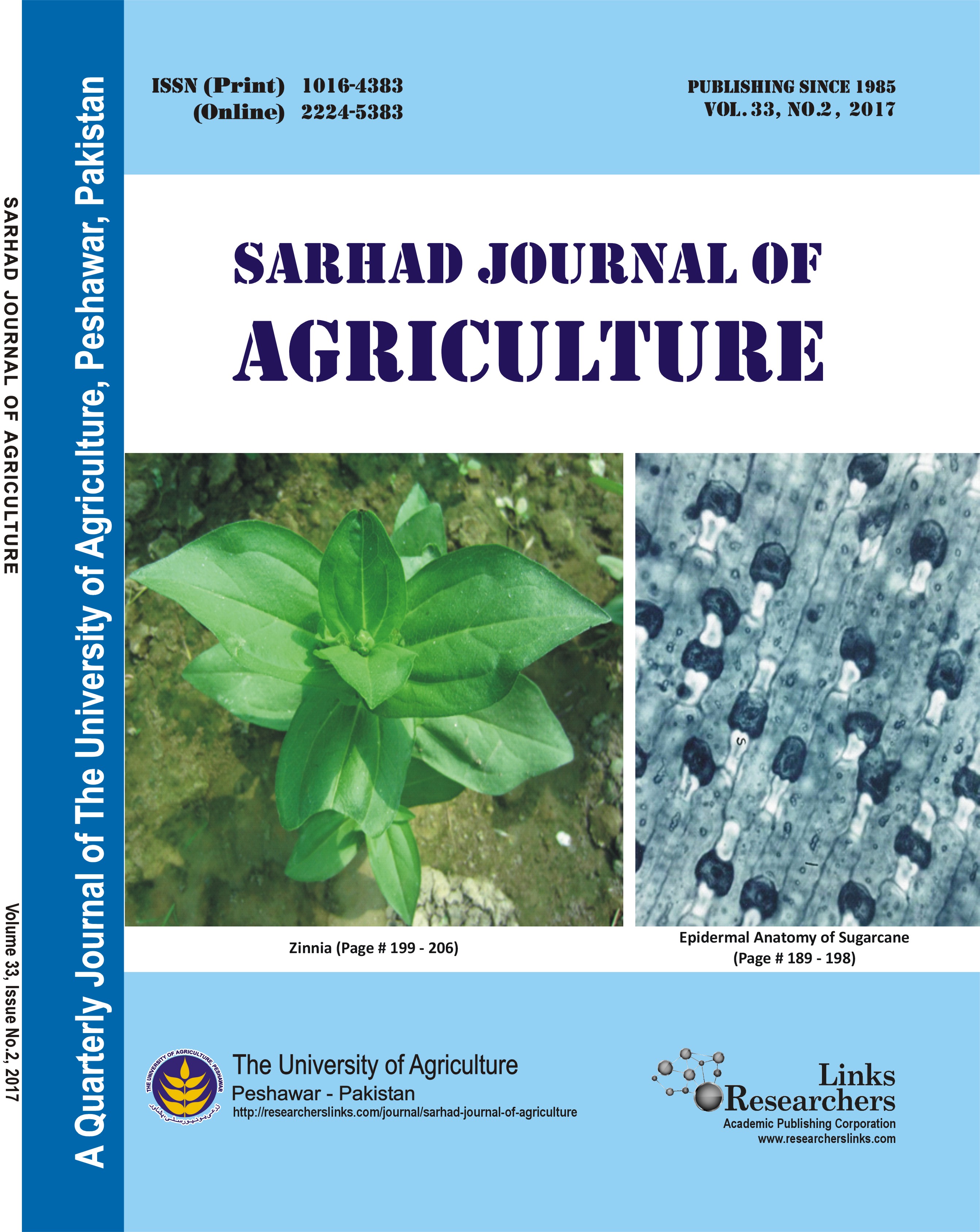Contamination of Groundwater Resources and its Impact on Milk Productivity and Efficiency of Dairy Farms: An Evidence from Punjab, Pakistan
Contamination of Groundwater Resources and its Impact on Milk Productivity and Efficiency of Dairy Farms: An Evidence from Punjab, Pakistan
Mahreen Alam*, Muhammad Ashfaq, Sarfraz Hassan and Asghar Ali
ABSTRACT
Poor groundwater quality is a fundamental problem for the dairy sector. Pakistan is ranked fourth among the top ten milk-producing countries. However, it is also among those countries having the lowest milk productivity. Milk yield is declining due to a number of factors, including water pollution. This study was aimed to evaluate the effect of poor groundwater quality on the milk yield of dairy animals. Groundwater samples were analyzed for the Total Dissolved Solid, Electric Conductivity, and potential Hydrogen. The groundwater quality was good at the tail, marginal at the middle, and poor at the head reaches of the distributary. Primary data were collected from 300 respondents along 11-L distributary located in District Sahiwal, Punjab-Pakistan during 2018-19. A stratified random sampling technique was used to collect data, and three stratums like head, middle, and tail of 11-L distributary were selected based on groundwater quality. The results showed that the benefit-cost ratio for milk production was higher with good groundwater quality. The Data Envelopment Analysis was used to calculate the technical efficiency. It found that farmers with good groundwater quality were technically more efficient. Tobit model used to analyse the impact of water quality parameters on the dairy animal’s efficiency. It is concluded that water quality was minimizing the potential gain from dairy animals. The study recommended that groundwater quality management be required to enhance the milk yield to improve the farming community’s economic status.
To share on other social networks, click on any share button. What are these?








